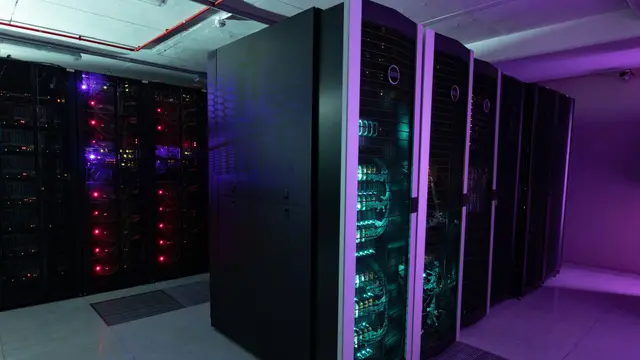As artificial intelligence continues to permeate various facets of everyday life, concerns about its environmental impact grow.
The energy hunger of AI systems is considerable, prompting some companies to explore nuclear energy as a potential solution.

However, researchers at BitEnergy AI have developed an innovative algorithm that may significantly decrease the energy demands of AI technologies.
The widespread application of AI involves complex calculations that handle enormous amounts of data, which consume substantial amounts of power.
The new approach, called Linear-Complexity Multiplication, or L-Mul, aims to streamline these calculations, making them simpler and more energy-efficient.
The BitEnergy AI team highlighted the growing appetite for energy in AI development, using the example of ChatGPT, whose early 2023 energy consumption was equivalent to the daily usage of 18,000 American households.
The novel L-Mul algorithm promises to reduce the energy consumption of AI computations by a staggering 95%.
Traditional AI computations rely heavily on floating-point multiplications to process data, which are known for their precision but also for their high energy cost.
L-Mul optimizes these complex mathematical operations, replacing them with simpler integer additions.
This shift not only cuts down on energy consumption but also preserves the speed and accuracy of AI models.
Moreover, the algorithm shows promising compatibility with popular AI models, such as transformer-based systems like ChatGPT.
These models employ an attention mechanism crucial for data comprehension. Experiments confirmed L-Mul’s potential to reduce computational demand while maintaining performance parity with existing technology.
Despite its advantages, adopting L-Mul across the industry is not without challenges.
The algorithm demands specialized hardware, currently not universally accessible.
BitEnergy AI is tackling this by developing necessary hardware and creating programming interfaces to integrate L-Mul into current AI infrastructures.
With continuous hardware development and software compatibility efforts, this advancement could revolutionize AI energy usage.
By addressing the computational demands of AI at their core, BitEnergy AI’s L-Mul might mitigate the pressing need for high-energy solutions like nuclear power.
